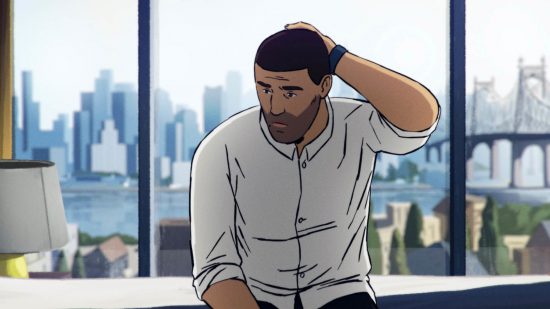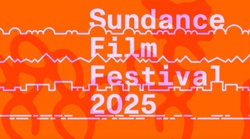Sundance 2021 Review: Flee – “A sobering dose of reality”

A still from Flee by Jonas Poher Rasmussen, an official selection of the World Cinema Documentary Competition at the 2021 Sundance Film Festival. Courtesy of Sundance Institute.
Prior to Sundance, news broke that Flee, a documentary from Jonas Poher Rasmussen, was adding two famous executive producers to its roster, Riz Ahmed (deserving all the award nominations for his recent turn in Sound of Metal) and Game of Thrones‘ Nikolaj Coster-Waldau. They will later be adding their voices to the English language version of the film, and it’s easy to see why this documentary, the winner of the World Cinema Grand Jury Prize at Sundance, impacted them so greatly as to influence their involvement. Flee is an ambitious and powerful project, an artistic rendering of one man’s story as a refugee and the impact his journey still has to this day.
Director Rasmussen met his subject, Amin (a pseudonym) in high school. Now good friends for 25 years, he had no idea of how the man first arrived in Denmark. Amin never told his story to anybody really, until now. It all starts with the question, “What does the word home mean to you?” For Amin, it means someplace safe, somewhere that you know you can stay without having to move on. For most of his formative years, home was a far away dream for Amin and his family.
Now about to start his post-doctoral work at Princeton University and marry his boyfriend, Kasper, Amin has a difficult and emotional time recounting the details of his story, some of which are fuzzy, but most of which are deeply embedded in his mind. It starts in Afghanistan, 1984 where he lives with his mother, brother and sisters, his father having disappeared after he was seen as a threat by the government. Living in Kabul, they are initially not part of the unrest taking place in much of the country but once the violent mujahideen-taliban fighting takes over the city, Amin and his family barely make it out of the country alive. Moscow, Russia is the only place that will grant them a tourist visa, and once it expires they are at the mercy of the Russian police, who are none too merciful if they cannot pay. Neither are the human traffickers that they try to employ to get them out of the country, to Sweden, where Amin has an older brother trying to help them escape.
Amin and his family’s harrowing tale of their refugee plight sees them locked in transport carriers, freezing in a Russian forest, below deck on an un-seaworthy vessel, detained in Estonia and, in the end, tragically separated. Making this journey even more profound for Amin is his early realization that he is gay (there are some moments of levity as he recalls being enamoured with Jean-Claude Van Damme’s Bloodsport poster on his wall). This is something there is no place for in Afghanistan, something that brings him shame and that he hides from his family. It’s one more reason why Amin cannot feel safe.
By using animation to tell Amin’s tale, Rasmussen is able to safely allow his subject the ability to speak freely and honestly. His identity is protected as his asylum seems currently based on a necessary lie that over time has become Amin’s truth. But the animation also serves another purpose, allowing us to actually visualize Amin’s history, something that would otherwise be impossible. Hand-drawn, stylish animation is paired with black and white sketched work during Amin’s more traumatic moments which elevates this interview to an even more compelling story, one that fully allows the audience to grasp the pain and injustice of his narrative.
Additionally, Rasmussen uses archival footage of Afghanistan’s history, and that of post-communist Russia amongst the animation for context. He also brings in pop music, with a little of Aha’s ‘Take On Me’ (appropriate for its video’s similar sketch animation style) and Ace of Base to help build the timeline. The multi-media approach is effective and never takes away from the central story, for which the director shows the utmost empathy. The trust built between Rasmussen and Amin is the only way this story comes to light.
Amin’s story doesn’t stop once he reaches Denmark. The psychological trauma of his journey still affects him and impacts his relationships as well as his ability to establish firm roots. But as emotional as Amin’s truth was for him to reveal, its result is a unique look at a refugee story that highlights this humanitarian crisis, the cost of human trafficking and the terrors refugees face. Flee is a sobering dose of reality that many of us will never truly understand, but if stories like Amin’s bring us even a little closer, it can influence true human connection that can lead to change. In the final moving frames of Flee, one can only feel hopeful that Amin finally feels safe, and in that sense, he will have discovered the meaning of ‘home.’










